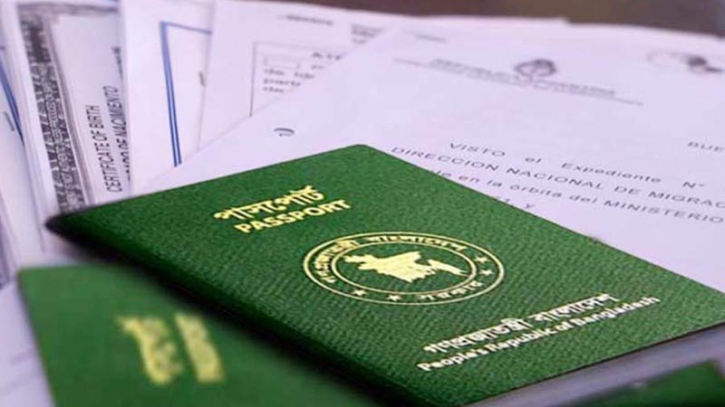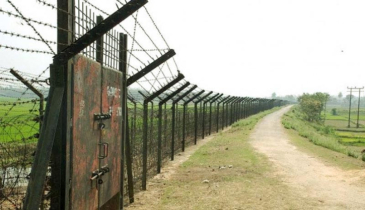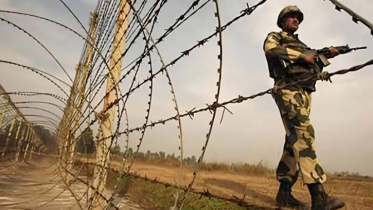Full-fledged Visa Service for Mutual Benefit

After the fall of former Prime Minister Sheikh Hasina on 5 August, many aspects of India-Bangladesh relations have slowed down significantly. The suspension of India’s visa service is one of the most remarkable instances as it has sparked public discontent.
In the wake of Sheikh Hasina fleeing to India, it suspended tourist visas indefinitely, citing the instability in Bangladesh. Though reopened in mid-August, the visa centres have been operating on a limited scale only, granting visas for patients, students and third-country applicants. In October, the Indian government has once again made it clear that the country will not resume issuing tourist visas to Bangladeshi citizens anytime soon, as “law and order situation” has not improved in Bangladesh. It has long-term implications in a wide range of areas, including diplomacy, bilateral relations and economy.
Recently, inflation, currency devaluation and high import costs have become problems for the South Asian economy. Most countries are experiencing political instability and economic uncertainty primarily due to the Russia-Ukraine war crisis and post-pandemic recovery attempts. On the other hand, the shift of political dimension in Bangladesh after the revolution and India’s reaction as a supporter of the former government of Bangladesh can change the relations paradigm between these two countries. Limiting the visa service is one of the problems that can interrupt the process of cooperation, mutual understanding and tolerance, as well as decelerate development initiatives. For Bangladesh and India, developing cross-border railways, land ports, and waterways are the primary sources of bilateral development initiatives.
In recent years, under Sheikh Hasina’s rule, New Delhi and Dhaka have made significant progress, establishing six land ports, reviving six old railway lines, and establishing a Friendship Pipeline to carry high-speed fuel. The development will accelerate the capitalisation of the need for better connectivity, bringing mutual benefit to both nations. Because of these connections, Bangladesh is now among India’s top five trading partners worldwide and its biggest trading partner in the neighbourhood. Although many have yielded mutual benefits, India has gained more leverage from these development and connectivity initiatives. Thus, the fall of Sheikh Hasina has been perceived as a setback for India. Under the transformed circumstances, there is now a sense of uncertainty regarding these one-sided privileges. Hence, India has repeatedly raised security concerns and expressed apprehensions over the potential rise of fundamentalism in Bangladesh.
However, as Bangladesh continues to be India’s top travel destination and bilateral trade increased by 95% between 2014 and 2024, limiting visa service would affect the economies and people to people relations. Addressing underlying bilateral issues is a prerequisite for achieving trade normalisation and fostering long-term economic growth. By resuming full-fledged visa issuance, bilateral resilience can be accelerated, and the negative economic effects of political upheavals can be eliminated.
Because of the geographical proximity, Bangladesh relies on India for trade, energy, infrastructure and medical tourism. According to reports, India granted almost 1.6 million visas to inhabitants of Bangladesh in 2023 alone, with about 450,000 of the visas being for medical reasons. However, the political changeover in Bangladesh has significantly impacted India’s inbound tourism sector, as reported by local outbound tour operators. They noted that the number of visitors travelling from Bangladesh to India has decreased by almost 90%. According to a report by The Economic Times of India, Bangladeshi travellers constitute nearly one-fourth of India’s incoming tourists. This means if a full-fledged visa service is not considered, India will lose out on Tk 750 crore per month, according to a director of the Tour Operators Association of Bangladesh. Last year, 9.23 million tourists brought in approximately INR 24 crore in foreign money, which represents the most significant percentage from any single nation, according to an Economic Times report.
Indian External Affairs Minister S Jaishankar has indicated that the number of Indians in Bangladesh is approximately 19,000. However, the actual number can be far more than this. The Indian workforce predominantly participates in many garment and textile manufacturing facilities, concentrating on merchandising and managing delicate buyer-related issues. If India does not ensure a full-fledged visa, it can cause community alienation for the Indian immigrants by Bangladeshi people.
In conclusion, deepening cultural and linguistic interactions will strengthen people to people connections and cooperation between the nations. Resuming a full-fledged visa system can facilitate continuous cooperation and connectivity, though both nations must adjust to changing conditions. It would not only facilitate smoother business and investment flows, fostering economic growth on both sides, but also promote cultural exchange, educational opportunities, and tourism, which are integral to building mutual understanding and trust. -Source: daily sun
.png)









